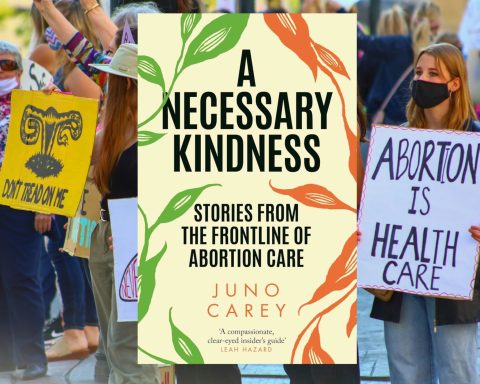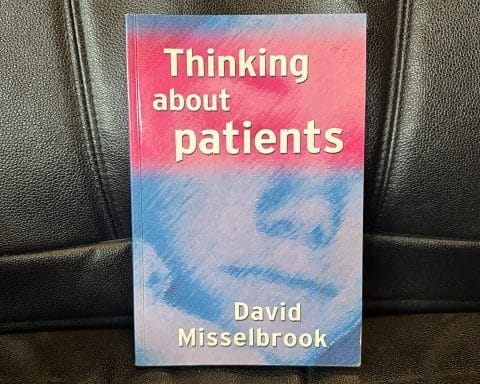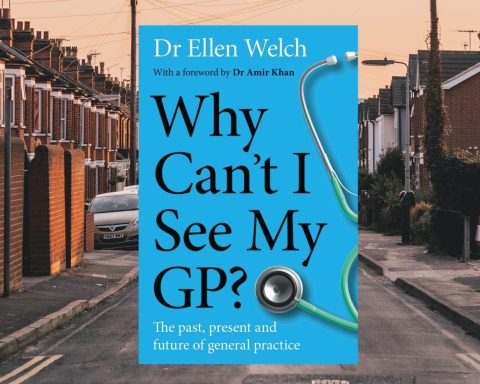 Katie Barnett is a Post CCT Fellow with Haxby Group Practice in York and an Honorary Clinical Fellow in the Department of Health Sciences at the University of York. She is on Twitter: @drkatiebarnett1 and blogs about wellbeing and fellowship at: Thefellowshipmonologues.wordpress.com
Katie Barnett is a Post CCT Fellow with Haxby Group Practice in York and an Honorary Clinical Fellow in the Department of Health Sciences at the University of York. She is on Twitter: @drkatiebarnett1 and blogs about wellbeing and fellowship at: Thefellowshipmonologues.wordpress.com
Reading fiction has always been a way for me to escape my world and visit someone else’s; it helps me to build empathy and understanding of the many unique experiences humans have. There are some books though, that stick with you in a way others don’t. ‘Such A Pretty Girl’ is readable in one sitting, taking around 2 hours to complete. It is set over the weekend a 15 year old girls’ father is released from prison, having been sentenced to 9 years but only serving 3 for child rape, based on her testimony.
This deeply insightful novel is written in the first person and gives the reader a true insight into the fear and degradation that children in abusive situations go through, the true injury to their natures and their trust in all people, their anger that they weren’t protected.
This deeply insightful novel… gives the reader a true insight into the fear and degradation that children in abusive situations go through.
For want of avoiding spoilers I have picked a few choice phrases that for me stuck out. The first shines a light on the residual emotional damage: ‘The abuse I can handle; it’s the happiness that cripples me’.
The second gave some insight into why these often anxious beings tend toward dangerous activities: ‘We’re not afraid of the dark. Our nightmares were born on sultry summer afternoons.’
‘We’re not afraid of the dark. Our nightmares were born on sultry summer afternoons.’
The next is a phrase that encapsulates the fear of telling someone: ‘I stop, feeling an absurd pang of conscience at my disloyalty. I have every reason to hate him – his betrayal colours all that I am, have been and will be – but it’s hard to shake the lessons learned before the souring, not the least of which is ‘blood is thicker than water’.’
And finally the knowledge that their lives will always be coloured by this past: ‘We binge, purge, sleep around. We drink too much and get too high, anything to blot out the past. We accept and endure beatings and humiliations because our fathers, our uncles, and our mothers twisted boyfriends said they loved us too, right before they broke our bones and tore our tissue, right before they made us receive them… The odds are high that the best of me has already been ripped away, and that if I don’t keep hold of myself I will lose what’s left.’
The book is set in the USA, and while this means different legislation and procedures, it does not diminish from the lessons to be learned from listening to victims of abuse. The intricate and manipulative things perpetrators do to inflict maximum power over their victims; to make them believe they can’t tell anyone, they’re doing this because they love them, and they truly are not worth saving.
‘The best of me has already been ripped away, and that if I don’t keep hold of myself I will lose what’s left.’
According to the NSPCC most child sexual abuse in the UK isn’t reported, recognised or prosecuted. And in 2020 there have been fewer opportunities for the signs to be spotted, particularly in general practice when in March 2020 we were mandated to consult remotely as much as possible in order to reduce the spread of coronavirus. In a survey of children it was estimated that as many as 1 in 20 have experienced contact sexual abuse, and 16.5% have experienced non-contact sexual abuse, the most likely to be victims of both are teenage girls.
We are a profession who until this year had regular contact with children, and were in a situation where we could have a 1:1 conversation with them, knowing who was in the room, asking parents to leave if appropriate, and get much more information from body language and other cues than we currently can due to the pandemic. And even then we were likely to miss signs. I have written before about how building relationships is possible in a remote setting, but I fear teenagers are a group for whom face to face contact is, in some situations, the only way to gather all the information needed. To build a rapport with a teenager where they will tell you the truth about their sexual relationships is a challenging skill in person, let alone via telephone.
Think back to Meredith and ‘Such a Pretty Girl’ – do you think she would have been able to tell the truth of her situation to a stranger over the phone?
Featured book
Such a pretty girl. Laura Weiss. Simon & Schuster UK, 2007. ISBN-13 : 978-1847390387
Featured photo by Markus Spiske on Unsplash









[…] Safeguarding book rv BJGP Life: https://bjgplife.com/2021/01/30/book-review-such-a-pretty-girl-a-fiction-to-make-us-think-about-safe… […]